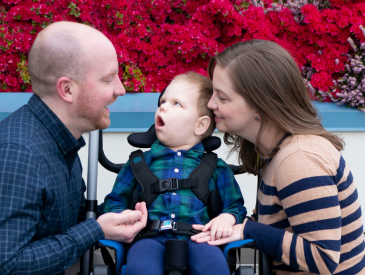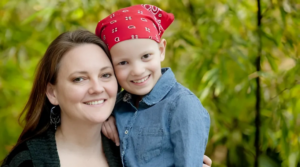Identity as Parent
Our identity as humans is formed around our relationships and connections to ourselves, our family, loved ones, friends, and communities. Deep loss has a profound impact on many, if not all, of these. Loss challenges us to make sense of a world that is forever changed.
It may seem unimaginable at any given moment, but it is possible to make meaning following the loss of your child. It is possible to take the joy, pain, sorrow, wisdom, laughter, and the profound love you have shared, and to live your life along with your suffering and sadness.

Your Team:
A mental health professional who uses therapy and other strategies to support coping and adjustment and treat concerns regarding social, emotional, or behavioral functioning.
A trained professional who works with people, groups and communities to help them better their lives.
A member of the clergy who is responsible for the religious needs of an organization and/or its constituents.
An individual who leads and/or guides individuals or groups coping with life experience and challenges.
A specialist whose aim is to improve the quality of life of their patients over the course of their illness regardless of stage, by relieving pain and other symptoms of that illness.
Specialized care for people whose prognosis is measured in months instead of years, and the desire is to focus on comfort.
A mental health professional who specializes in bereavement and loss.
A psychologist, social worker, chaplain and/or spiritual leader or palliative care clinician or hospice team can support you, your co-caregiver, and other family members in processing strong emotions. A hospice team or grief counselor is specially trained in bereavement support and can also recommend support groups and other resources.
But caring for your child may have changed your views about what is most important in parenting. As their condition progressed, some things may have come to matter more to you and your family, and other things come to matter less. You may have questions or be at peace with the choices you have made, even if you are disappointed in certain outcomes. Hopefully, you have discovered that you are stronger, braver, and more competent than you ever thought possible. Hopefully, you know that you did the very best you could for your child at the time.
Now you may be wondering whether without your child you are still a parent to that child. How should you respond to questions about your family: whether you have children, how many children you have, what to say about your child who has died? What will it be like to share your child with people who will never have a chance to meet them—possibly even including future siblings? There are no right or wrong answers to these questions. You may find that you have different answers for different people. With some people you may feel safe sharing your family’s journey and with others not. This is all very normal, and entirely up to you.
You may also be considering whether to have more children, to once again be actively parenting. This is a very complex question that for most parents raises a web of thoughts and feelings. These are described in the section Family Planning.
Whatever you are feeling or thinking now or in the future, know that the end of your child’s life does not mean that you are no longer a parent. It is not unusual for us to continue our relationships with loved ones long after they leave us. The section Maintaining Connection With Your Child addresses this subject in more detail.
– Paula, parent of Lydia
Related Resources
-
 Time passing is really hard.video
Time passing is really hard.video -
 A mom on grief in bereavement: “I hope to be myself again.”video
A mom on grief in bereavement: “I hope to be myself again.”video -
 The Question: So, how many kids do you have?BLOG
The Question: So, how many kids do you have?BLOG -
 Answering the question, "How many kids do you have?"video
Answering the question, "How many kids do you have?"video -
 Death of the only child: We went from being parents to just not being parents.video
Death of the only child: We went from being parents to just not being parents.video -
 “There are six of us, not five.”video
“There are six of us, not five.”video